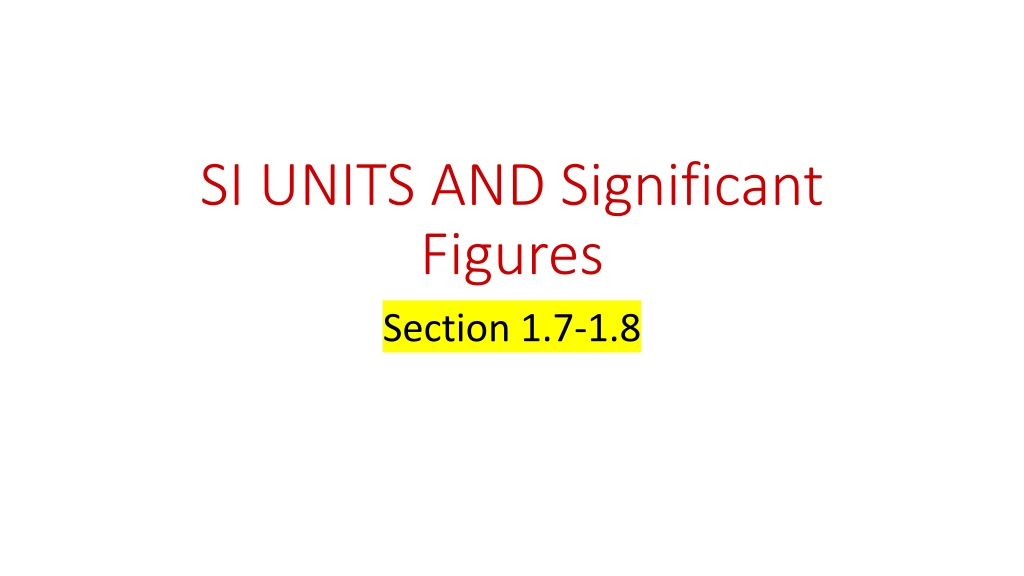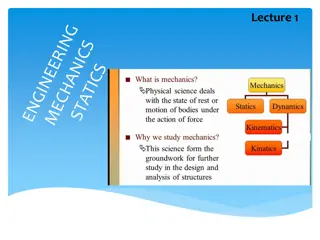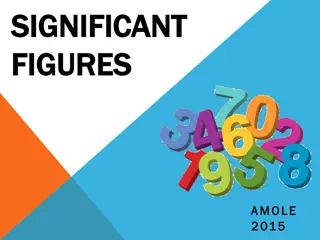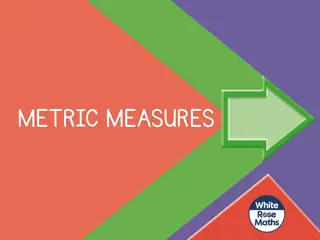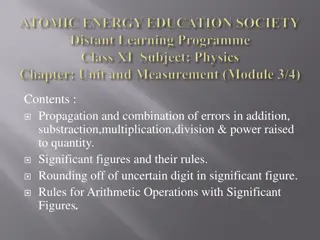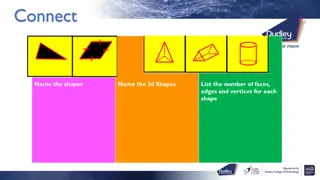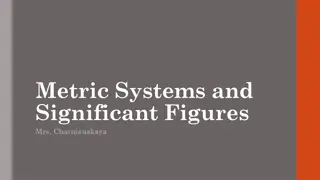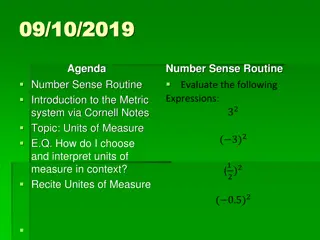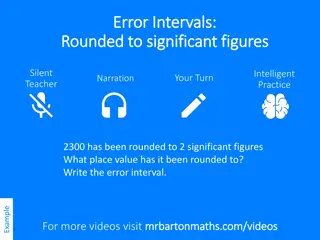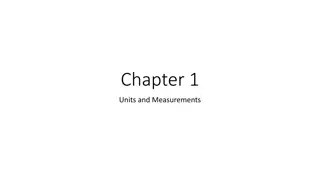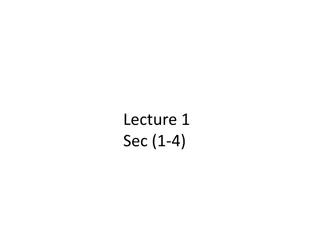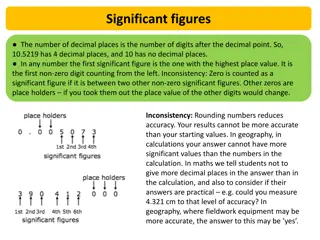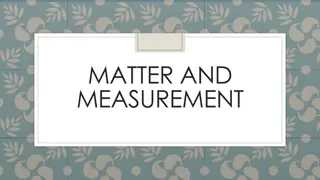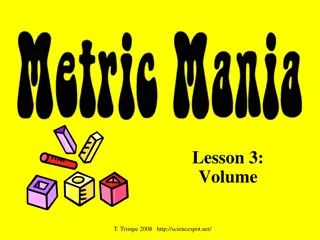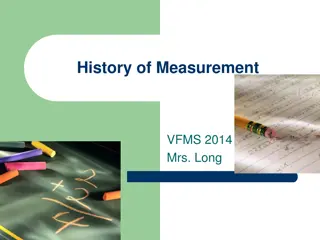SI UNITS AND Significant Figures
Explore the fundamentals of SI units, significant figures, and the rules governing their use in calculations. Learn about the prefixes of the metric system, distinguishing between exact and inexact numbers, and how to determine significant figures in various scenarios. Discover the rules for sig figs in calculations, including multiplication, division, addition, and subtraction. Improve your understanding of intermediate answers and rounding practices for accurate results.
Download Presentation

Please find below an Image/Link to download the presentation.
The content on the website is provided AS IS for your information and personal use only. It may not be sold, licensed, or shared on other websites without obtaining consent from the author.If you encounter any issues during the download, it is possible that the publisher has removed the file from their server.
You are allowed to download the files provided on this website for personal or commercial use, subject to the condition that they are used lawfully. All files are the property of their respective owners.
The content on the website is provided AS IS for your information and personal use only. It may not be sold, licensed, or shared on other websites without obtaining consent from the author.
E N D
Presentation Transcript
SI UNITS AND Significant Figures Section 1.7-1.8
Prefixes of the Metric System Prefixes of the Metric System
EXACT NUMBERS No uncertainty Counting Conversions Not used in rounding INEXACT NUMBERS Uncertain Measurements Use these when rounding
Rules for Sig Figs 1) All nonzero digits are significant 3542 has 4 sig figs 2.52 x 1011has 3 sig figs 2) Zeros between nonzero digits are significant 203 has 3 sig figs 3) Zeros at the beginning of a number are never sig figs 0.0006 has 1 sig fig 4) Zeros at the end of a number are significant only if the number contains a decimal point 0.0300 has 3 sig figs 200 has 1 sig fig
Sig Figs in Calculations RULE 1: In multiplication and division- sig figs of the answer should be the same as the measurement with the fewest sig figs 6.221cm x 5.2cm = 32.3492 cm2= 32 cm2
RULE 2: For addition and subtraction- final answer has the same number of decimal places as the measurement with the fewest decimal places. 20.42 + 1.322 + 83.1 = 104.842 = 104.8
Intermediate Answers If staying within the same Rule: Enter numbers one after another into calculator SAVE ROUNDING UNTIL THE END If switching between Rules: You MUST round like a final answer before switching
Assignment Page 30, numbers 24, 25, 28, and sig fig worksheet
